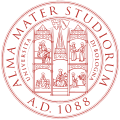Italy - Universitá di Bologna Facoltá di Medicina Veterinaria
| ||||||||||||||||
| ||||||||||||||||
The University of Bologna (also called Alma Mater Studiorum in latin), was first founded in 1088 and it is considered the oldest University in Europe. The University of Bologna (UNIBO) is made up of 11 different schools (after the School Reform of 2010). One of these is the School of Agriculture and Veterinary Medicine, fonded in 1783. This comprises a variety of disciplines related to sciencific life such as animal and botanical science, studying the mechanisms underlying the different pathologies.
About Us
UNIBO Veterinary and Agriculture studies were first described around the eighteenth century. The independence of these two branches of studies, achieved in the 1879 and 1900, is now lost, since the recent creation of the School of Veterinary Medicine and Agriculture.
The School includes different locations: Ozzano dell'Emilia hosts the Veterinary Medicine course, while other related courses are located in Cesena, Cesenatico and Imola.
Education
The School runs 15 courses of study. One of these is the Veterinary Medicine course, which allows the graduated students of UNIBO to work as veterinarians around Europe. The UNIBO Veterinary Medicine course was the first Italian Veterinary course to achieve an EAEVE accreditation (European Association of Establishments of Veterinary Education) which testify the high teaching level, comparing it to the best Universities in Europe.
Current Research
Research activity at UNIBO is a priority. The University collaborates with national and international Research Centres, through multi-disciplinary teams. The results are relevant scientific advances, embracing many thematic areas such as basic research, clinical science, farm animal welfare and production, population health and biotechnology.
Clinical Services
The Schools Teaching Centres includes important didactic/experimental facilities such as: a teaching hospital, an experimental byre, a cheese factory, an experimental abattoir and a centre for artificial insemination of various animal species.
The teaching hospital is formed from two buildings dedicated respectively to small and large animals. Here students can work with veterinarians to offer a high level of care and follow referral cases together with daily journal clubs.
The hospital has always been one of the strengths of UNIBO Veterinary School. The modern facilities and the high level of knowledge of the staff have allowed the University to develop a strong awareness of animal health and well-being.
The UNIBO "mission" is to improve the quality of the lives of our animals, together with the public health quality of life, collaborating with owners and colleagues and continuously promoting veterinary medicine advances and pioneering techniques.
View other vet schools
Geographic coordinates: N 44,43450; E 11,48628.


